by Admin | Apr 3, 2016 | Event Updates
(April 4th, 2016) Japan announced last week what it said it hoped would be priorities for the G7 Summit set for May 26-27 in Japan. (The Boston Global Forum, in cooperation with Japanese officials, has been preparing recommendations for topics and positions for the summit as part of its BGF-G7 Summit Initiative.)
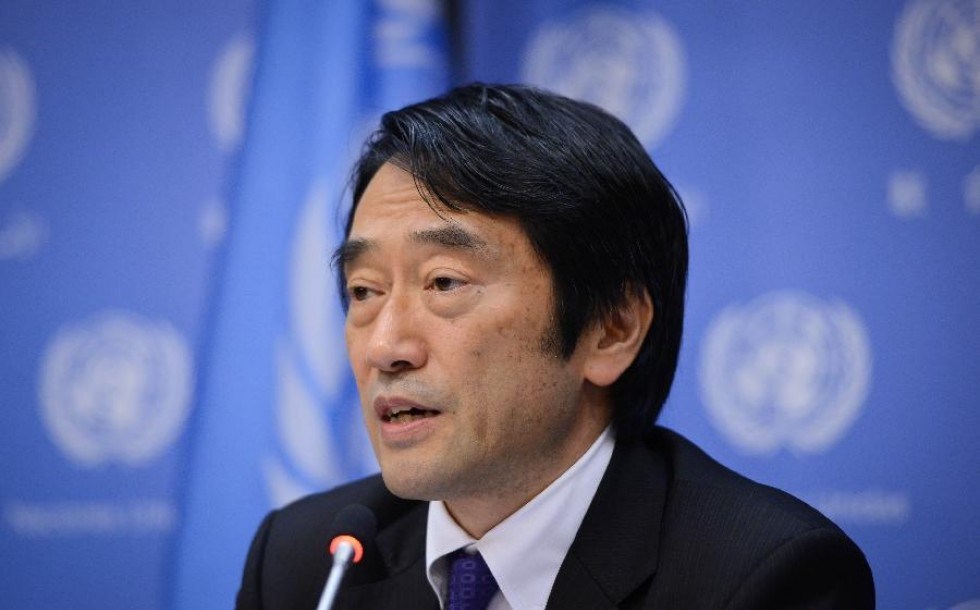
Mr. Yasuhisa Kawamura.
Yasuhisa Kawamura, Prime Minister Shinzo Abe’s spokesman, set forth as the first topic addressing the economic weakness in the Group of 20 major and emerging economies, especially China, whose growth rate has slowed sharply.
Mr. Kawamura said that given the economic weakness being demonstrated in many nations, the G7 meeting should send a “clear message to the world so that those countries will make a contribution to the sustainable growth of the world economy.’’
He also said the G7 summit should also take up “in a strategic way” such issues as global terrorism, Russia’s conflict with Ukraine and the threat posed by North Korea’s nuclear ambitions.
The group, which includes the United States, Italy, Germany, Japan, Britain, France, Canada and France, cut Russia from the group that had been known as the G8 in 2014 after Moscow seized and annexed Crimea.
by Admin | Apr 3, 2016 | Initiative
(April 4th, 2016) European Union governments had vowed deeper cross-border cooperation to battle Islamic terrorism after the November attacks in Paris exposed fatal weaknesses in security coordination, the Brussels attacks showed that those efforts remain very incomplete. This week’s deadly strikes in Brussels have underscored that the efforts of European Union governments pledged on counterterrorism still have a long way to go.
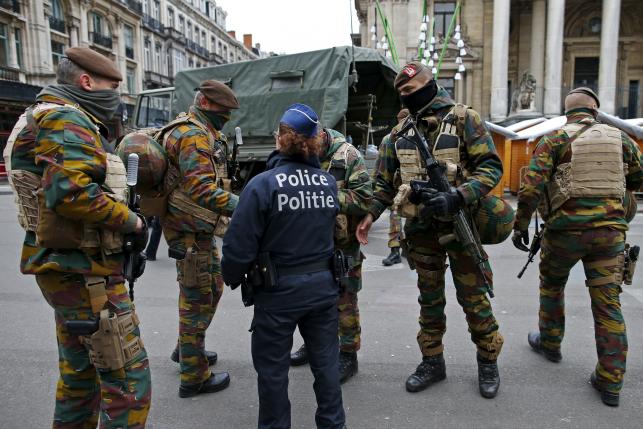
European Union governments had vowed deeper cross-border cooperation to battle Islamic terrorism after the November attacks in Paris exposed fatal weaknesses in security coordination, the Brussels attacks showed that those efforts remain very incomplete.
E.U member officials say that wide gaps persist in coordination among the bloc’s governments. After the Paris attacks, the E.U. promoted a package of measures to boost the bloc’s response to terrorism – included stepping up data-sharing, cracking down on arms trafficking and terrorist financing and strengthening E.U. border controls.
But months later, most key measures remain unimplemented. These include a air-passenger database to help authorities track terror suspects trying to return to Europe. That measure has been held up in the European Parliament because of data-privacy concerns.
But perhaps the Brussels attacks will get things moving.
by Admin | Apr 3, 2016 | AI World Society Summit
(April 4th, 2016) In The Boston Global Forum’s latest online dialogue on cybersecurity, Andrew Douglas, director of Deloitte’s Cyber Risk Services, and Allan M. Cytryn, a BGF adviser and a principal of Risk Matters International, discuss how organizations can use “white hat hackers’’ to help identify weaknesses in their digital systems and defend against malicious intrusions by “black hat hackers’’. This is a very useful session, particularly for businesses.
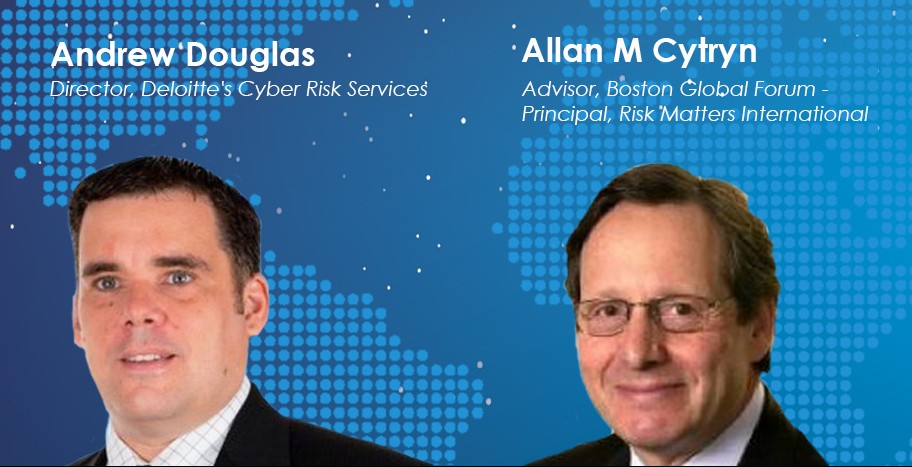
Some of the white hat work, Mr. Douglas noted, recalls the sort of reverse engineering that led to the development of the Enigma machine used to break the German codes in World War II.
Mr. Douglas noted that the digital community is cooperating more than ever to help fight “black hat hackers’’ who may be seeking to damage organizations’ systems and/or to steal information. This involves testing and surveillance, both he and Mr. Cytryn have noted, to look for gaps in hardware, software and the human (especially regarding training and daily behavioral discipline) sides of digital systems.
Mr. Douglas talked about the challenge of deciding how much to disclose about white hat hackers’ tools without giving those weapons to “the bad guys.’’
And he expressed satisfaction that recent big data breaches, such as that against Target, the huge retailer, and other events have led to more investment in digital security and heightened cooperation among private- and public-sector organizations to combat cybercrime. Further, he implied that “bounties’’ for finding security problems could be used to lure gray or black hats to become white hats.
Mr. Douglas praised the BGF for its Ethics Code of Conduct for Cyber Peace and Security and the BGF’s work to prepare proposals on cybersecurity for the G7 Summit in Japan, on May 26-27.
by Admin | Mar 30, 2016 | News
(March 31st ,2016 ) On March 31, Mr. Allan M. Cytryn, a Boston Global Forum adviser, and Mr. Andrew Douglas, Director at Deloitte’s Cyber Risk Services, will speak on “White Hat Hacking”. It’s another online discussion in this year’s BGF cybersecurity series.

Live-stream of The Presentation to The BGF: White Hat Hacking
https://www.youtube.com/watch?v=iTNAWfreLd8&feature=youtu.be
Discussants are encouraged to send questions to [email protected]. Members of the Boston Global Forum’s Special Editorial Board will gather your insights and send them to the speaker.
About Mr Allan M Cytyn:
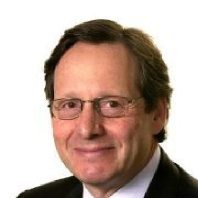
Mr Allan M. Cytryn is with Risk Masters Inc, a consulting firm that advises clients on Risk Mitigation and Management, including business continuity planning, disaster recovery, and recovery from cyber attacks. He has been a senior Information Technology executive for more than 30 years. Prior to Risk Masters, Allan spent 15 years at Deloitte where he was a Director. His roles and responsibilities there included Regional CIO, National Director of Applications, and National Director of Technology for Audit and Enterprise Risk Services. Before joining Deloitte, Allan was the CIO of Simpson Thacher & Bartlett, a Vice President of Corporate Finance with Goldman Sachs, and a Vice-President of Information Technology with Bankers Trust. In all of these roles he led organizations through rapid operational and technological transformations and helped them adopt new and innovative technologies to support their core strategic objectives.
Mr Allan additionally played a critical leadership role for Deloitte in managing the IT recovery from the 9/11/2001 attack in New York and for Simpson Thacher and Bartlett leading their recovery from the 1993 NatWest Tower Bombing in London.
Allan earned a BS in Electrical Engineering and Computer Science and an MS in Operations Research & Applied Mathematics from Columbia Engineering, as well as a M.Arch from Columbia’s Graduate School of Architecture, Planning and Preservation.
About Mr Andrew Douglas
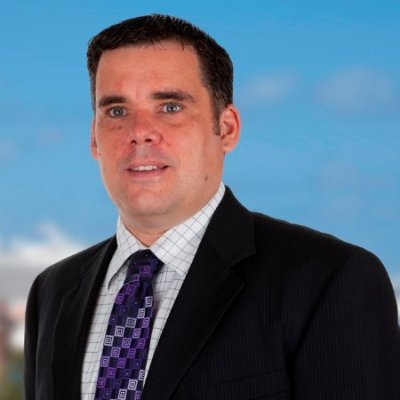
Mr Andrew Douglas is a Director in Deloitte’s Cyber Risk Services practice, which helps clients to be Secure, Vigilant, and Resilient in the face of an ever increasing array of cyber threats and vulnerabilities.
Mr Andrew specializes in technical security assessments, including penetration and vulnerability assessments, as well as cyber program assessments to help organizations identify and address their cyber gaps.
by Admin | Mar 27, 2016 | Initiative
(March 28th, 2016) This week, President Obama is in Havana, he is determined to make his détente with Cuba irreversible. He does after all face quite a few people who oppose his effort to end the half-century of enmity between the two countries.
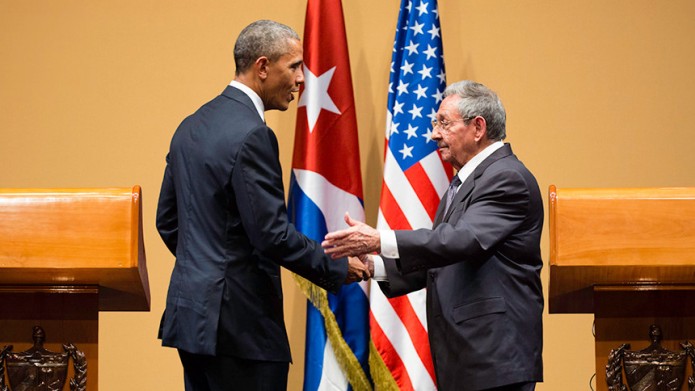
As his trip to Cuba just showed, President Pbama is detarmined to make U.S detente with the island nation irrevasible, despite the continuing opposition of many Republicans. He wil be aided by the many U.S business interest that see the island a potential goldmine. Already, foreign capital, much of it operating through joint foreign-Cuban ventures, is getting a big foothold there.
by Admin | Mar 27, 2016 | World Leaders in AIWS Award Updates
(March 28th, 2016) Taking second place of the list of 50 of the world’s greatest leaders is German chancellor Ms Merkel, who is currently facing an anti-migrant backlash after hoardes of refugees flooded the borders.

Fortune magazine had named German Chancellor Angela Merkel as number 2 (after Amazon’s Jeff Bezos) on its list of the world’s greatest leaders. The award comes despite the fact that she faces a political backlash because of her government’s acceptance of up to a million migrants over the past year, mostly from the Mideast.
Fortune noted: “She is the only Continental leader whose term in office predates the 2008 financial crisis, a winner of three general elections who has also seen off countless intra-party rivals.”
Aun San Suu Kyi, leader of the National League for Democracy party in Myanmar, was ranked as third while Pope Francis came in fourth in the list.
Last December, The Boston Global Forum named Chancellor Merkel one of its “World Leaders for Peace, Security and Development’’.
by Admin | Mar 27, 2016 | World Leaders in AIWS Award Updates
(March 28th, 2016) The UN Secretary-General’s Global Initiative on Education has developed three core priorities: put every child in school, improve the quality of learning, and foster global citizenship.
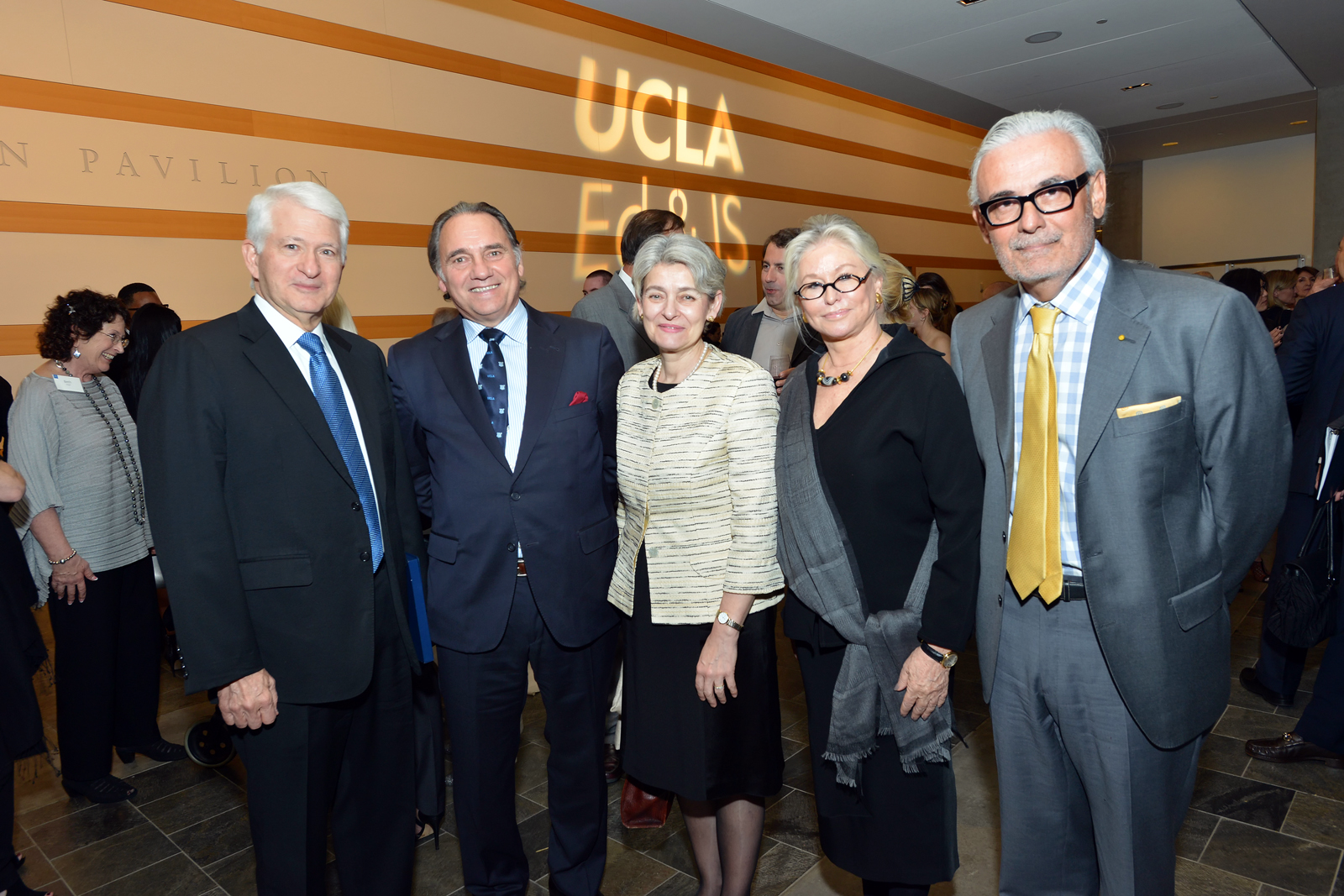
An upcoming U.N. Conference on Global Citizenship will host discussions on the meaning and promise of global citizenship, especially through the eyes of youth.
On May 30 to June 1, leaders of nongovernmental organizations, technical experts, U.N. and national government officials will meet in Gyeongju, South Korea, to develop an action agenda focused on the theme: “Education for Global Citizenship: Achieving Sustainable Development Goals’’.
Education for global citizenship is necessary for building a more peaceful world where everyone has a right to clean air and water, food, shelter and other basic human rights. UNESCO Global Citizenship Education “aims to empower learners to assume active roles to face and resolve global challenges and to become proactive contributors to a more peaceful, tolerant, inclusive and secure world.” To this end, U.N. Secretary-General Ban Ki-moon’s Global Initiative on Education has developed three core priorities: put every child in school, improve the quality of learning and foster global citizenship.
The Boston Global Forum has been intensely involved in global-citizenship initiatives, especially through its collaboration with the UNESCO-UCLA program in Global Learning and Global Citizenship Education. The program’s chair is BGF member Prof. Carlos Alberto Torres. And Nguyen Anh Tuan, the BGF’s Chief Executive and Editor-in-Chief, is chairman of the International Advisory Committee of the UNESCO-UCLA Global Citizenship Education program.
by Admin | Mar 27, 2016 | AI World Society Summit
(March 28th, 2016) The FBI found the hackers’ identities by obtaining search warrants for their Google and Facebook accounts. The men often used Gmail accounts to threaten and extort money from their victims.
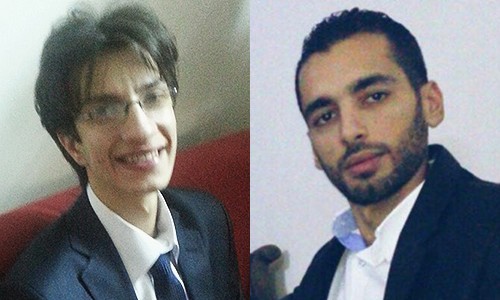
Ahmad Umar Agha and Firas Dardar
The FBI has put two Syrian computer hackers on its most-wanted list for international cybercrime directed against the U.S. They are connected with an organization called the Syrian Electronic Army, which backs the regime of Syrian President Bashar Assad. The organization has also attacked Web sites of the U.S. Marines, Harvard and Human Rights Watch.
The two hackers were identified as Ahmad Umar Agha and Firas Dardar.
The addition of the two men brought to 19 the number of people put on the most-wanted list. Others include five members of China’s People’s Liberation Army and assorted hackers from Eastern Europe and Russia.
by Admin | Mar 27, 2016 | AI World Society Summit
(March 28th, 2016) The Boston Global Forum host online discussion on cybersecurity, and also try to bring cybersecurity proposals to the 2016 G7 Summit scheduled for May 26-27 in Japan.

J.D. Bindenagel, the Henry Kissinger Professor for Governance and International Security at the University of Bonn, and Prof. Matthew Smith, a computer-science professor there and a member of The Boston Global Forum, discussed the opportunities and challenges involved in establishing norms and rules to promote international cybersecurity and thwart cyberterrorism and other digital crime.
Their conversation is one in a series of online discussions hosted by the BGF this year on cybersecurity.
The two experts discussed the need for the technical community and governments to understand each other. Professor Smith, a “techie,’’ noted the “gulf’’’ between the “surveillance side’’ and the “cybersecurity side’’ in efforts to create a system of ethics and norms in the cyberworld that both protects the privacy of law-abiding individuals and organizations and addresses the need to block and track terrorism and other criminal behavior.
He said that the Edward Snowden revelations produced much worry in the technical community about U.S. government power to intrude into private cyberplaces. “We have a mindset that we’re {the technical community} defenders against the surveillance state,’’ he said.
Professor Smith cautioned that for governments to force tech companies to have “back doors’’ into digital information could do more harm than good. He noted that however rigorously national governments might act to get information from a device, such as in the San Bernardino terrorist/iPhone case, that individuals and organizations can “migrate’’ outside national borders to escape government intrusions.
Mr. Bindenagel, a former U.S. ambassador, strongly supported discussions in such venues as the BGF, G7 and G20 about establishing codes of ethics and acceptable norms for cyberbehavior. Such discussions in search of consensus are needed to create what he called “first principles’’ that can be the foundation for establishing formal international agreements, under the United Nations, to protect cybersecurity. Professor Smith, for his part, called for a broad ‘’forum’’ to take up these issues.
The Boston Global Forum has been working to bring cybersecurity proposals to the 2016 G7 Summit scheduled for May 26-27 in Japan.
Professor Bindenagel said that for each nation to set its own cyber-rules in isolation from the intrinsically international nature of cyberspace can only brew conflict. Both he and Professor Smith see the difficulty of reaching global agreements to stem global warming in the face of national economic interests as an analogy to what will be difficult efforts to achieve international cybersecurity consensus.










